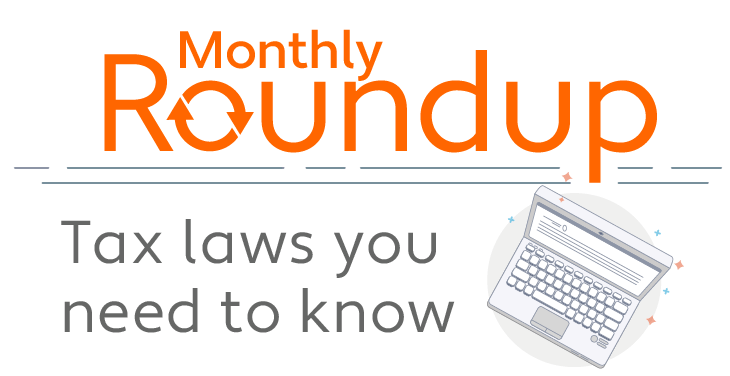Bill to fight online sales tax introduced in Congress
A bill has been introduced in Congress that would take the legs out from under existing remote sales tax laws.
Tired of Congressional inactivity on internet sales tax, a growing number of states have enacted legislation enabling them to tax sales made by out-of-state sellers. The majority of these laws maintain that a connection between a state and seller is created by a seller’s affiliation with in-state residents, such as referrals or a link on a website (affiliate or click-through nexus). More recently, several states have enacted economic nexus legislation affirming that there is an economic need to tax remote sales. These states, determined to win the right to tax online sales once and for all, hope their laws will be challenged so they can argue their case before the United States Supreme Court and ultimately reverse Quill Corp. v. North Dakota, the 1992 case that upheld the physical presence requirement for nexus. As state after state has created laws, Congress has remained mostly silent on the issue.
And now the fallout.
Three internet sales tax bills have been gathering dust in Congress since the start of 2015:
- Marketplace Fairness Act of 2015 (MFA)
- Remote Transactions Parity Act (RTPA)
- Online Sales Simplification Act (OSSA)
The first two, MFA and RTPA, differ in the details but are similar in nature. Both allow states to tax sales (above a certain threshold) by remote sellers and both provide exceptions for small remote sellers. The third, which exists in draft form only, is quite different from the other two: sales would be sourced to the origin rather than destination state and a flat rate of tax would be established for remote sellers from states with no sales tax. States could require in-state sellers to collect tax on all interstate sales, and there would be no small seller exception. There has been little follow-up to these measures since their inception.
Last week, a fourth piece of legislation was introduced, this one seeking to prevent states from taxing any seller lacking a physical presence. The No Regulation Without Representation Act of 2016 (H.R. 5893) seeks to codify the physical presence requirement upheld in Quill.
Taxation with representation only
According to bill sponsor Congressman Jim Sensenbrenner (R-Wis), “States should not have the ability to tax non-citizens, plain and simple. This legislation would help reduce burdensome overregulation, keep government overreaches in check, and ensure that only residents of a state are subjected to tax obligations.” Under his bill, “a state may not obligate a person to:
- Collect a sales, use or similar tax;
- Report the sale;
- Assess a tax on a person; or
- Treat the person as doing business in a state for purposes of such tax, unless the person is physically present in that state during the relevant tax period.
The bill also establishes a de minimis physical presence under which “physical presence” does not include any of the following:
- Referral agreements with in-state persons who receive commissions for referring customers to the seller
- Presence for less than 15 days in a taxable year
- Product delivery in-state by a third-party
- Internet advertising services not exclusively directed towards, or exclusively soliciting, in-state customers
Finally, it protects non-sellers: “Sales tax payment, collection or reporting obligations may only be imposed on a purchaser or seller having a physical presence in the taxing State.” It would take effect January 1, 2017 — long before a challenge to Quill is likely to make its way to the Supreme Court.
Possible fallout
It’s too early to tell if this measure will have any traction. However, if enacted, the click-through and affiliate nexus laws in place in numerous states would likely be trumped by the bill’s de minimis provision. Notice and reporting requirements such as the one established in Colorado would also be preempted by the physical presence requirement. And there would be little point in continuing the legal battles currently underway over the Alabama and South Dakota laws (with an eye to reverse Quill), as the federal law would take precedence over the Supreme Court.
No matter what happens, sales tax software-as-a-service (SaaS) facilitates tax compliance throughout the tax cycle, for businesses of all sizes.

Your competitors live by this annual report
Trusted by professionals, this valuable resource simplifies complex topics with clarity and insight.
Stay up to date
Sign up for our free newsletter and stay up to date with the latest tax news.













